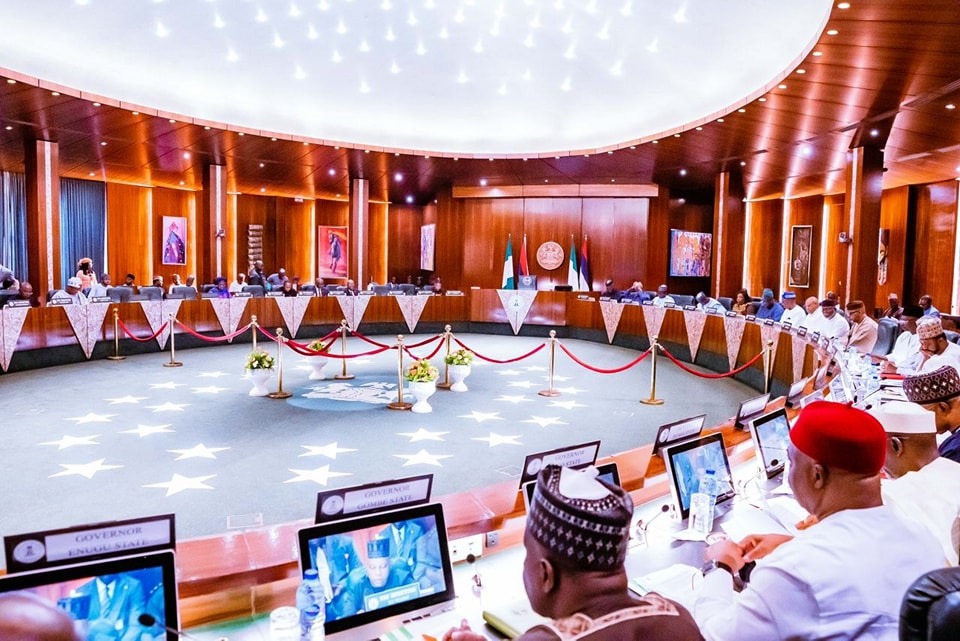In a major push toward diversifying Nigeria’s economy, the Federal Executive Council (FEC) has approved four key policy initiatives aimed at strengthening the country’s intellectual property, digital trade, and service export sectors.
The policies, presented by the Minister of Industry, Trade and Investment, Dr. Jumoke Oduwole, were approved during Thursday’s FEC meeting, marking what the ministry described as a “turning point” in Nigeria’s innovation and investment landscape.
According to Oduwole, the initiatives approved under President Bola Ahmed Tinubu’s Renewed Hope Agenda form part of a broader strategy to modernise Nigeria’s industrial framework, attract investment, and position the country as a leading hub for digital and knowledge-driven economic growth.
The four approved policies include: National Intellectual Property Policy and Strategy (NIPPS), Ratification of the AfCFTA Protocol on Digital Trade, Establishment of a National Coordination Mechanism for Services Exports led by NATEP and Implementation of the Product Authentication and Tracking System (PATS)
Together, they are expected to enhance Nigeria’s competitiveness, safeguard local innovation, and create new export opportunities for businesses and skilled professionals.
For the first time, Nigeria will operate under a unified national framework to protect and commercialise intellectual property rights.
The National Intellectual Property Policy and Strategy (NIPPS) fosters an ecosystem that connects innovators, creators, researchers, and investors, transforming intellectual property into tradable, bankable assets.
The policy, developed in collaboration with the World Intellectual Property Organisation (WIPO), was co-led by the Ministries of Industry, Trade and Investment; Justice; and Arts, Culture, Tourism and the Creative Economy. It drew input from over 200 stakeholders across government, academia, and the private sector.
Officials say the NIPPS will position Nigeria as a regional intellectual property hub for West and Central Africa while ensuring stronger protection for local creators.
The FEC also ratified Nigeria’s participation in the African Continental Free Trade Area (AfCFTA) Protocol on Digital Trade, which was adopted by the African Union earlier this year.
The protocol establishes the first continent-wide legal framework for e-commerce, cybersecurity, data governance, and digital consumer protection—critical pillars for Africa’s growing digital economy.
President Tinubu, who serves as Co-Champion of the protocol, has been at the forefront of efforts to harmonise digital trade regulations across the continent.
Oduwole said the ratification would enable Nigeria to “move from participation to leadership,” shaping the rules around cross-border data flows, taxation, and digital services.
The framework is expected to enhance market access for Nigerian startups and SMEs, unlocking opportunities in fintech, logistics, and creative tech sectors within a combined continental GDP of over $3.4 trillion.
Recognising the growing importance of the service economy, which accounts for over 50 per cent of Nigeria’s GDP but less than 10 per cent of exports, the Council approved the establishment of a National Coordination Mechanism for Services Exports to be led by the National Talent Export Programme (NATEP).
The mechanism will harmonise existing government programs, such as the 3 Million Tech Talent (3MTT) initiative, the Outsource to Nigeria Initiative (OTNI), and TechPro4Europe, into a unified structure that promotes Nigeria’s global competitiveness in professional, digital, and creative services.
By 2030, the programme is projected to create 1 million decent jobs in the service export sector, add $10 billion annually to the GDP, train 10 million Nigerians for global service markets, and attract over $15 billion in investment to digital and creative industries.
Oduwole described the framework as a strategic move to make Nigeria a global outsourcing destination and Africa’s service export hub.
The minister noted that within her first year in office, the ministry has driven forward-thinking reforms that reflect the President’s vision of a modern, diversified, and inclusive economy.
“These policies ensure that ideas, data, and talent become exportable commodities,” she said. “They will deepen industrialisation, create jobs, and strengthen Nigeria’s non-oil revenue base.”
With these approvals, Nigeria is expected to consolidate its position as a continental leader in innovation and digital trade—ushering in what the minister describes as a new era of economic transformation.

